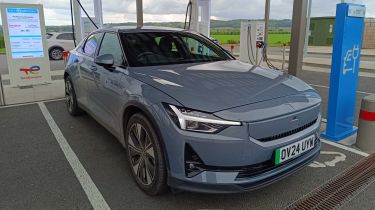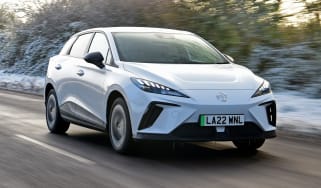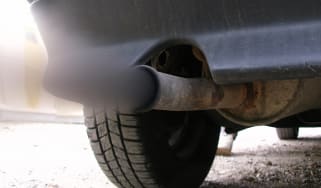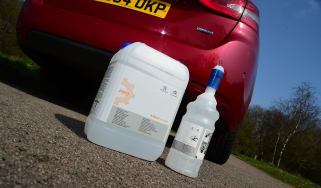EV efficiency: how to calculate miles per kilowatt-hour
Three-quarters of people don’t know how to calculate EV efficiency: we explain how miles per kilowatt-hour affects your car’s range

Aerodynamic alloy wheels and the lack of a radiator grille aside, electric cars look very much like their petrol and diesel equivalents, despite the engineering and chemistry under the metal being quite different.
Therefore, when calculating how efficient an EV is, the old-school figures of “miles per gallon” and “litres per 100km” just won’t cut it when a car is running on electricity, rather than fossil fuels. This is where the calculations of “miles per kilowatt-hour”, or if you’re a fan of the metric system, “kilowatt-hours per 100km” come in.
However, according to research from our sister site, Carwow, 64 per cent of people don’t understand how EV efficiency works, with over three-quarters (78 per cent) having no idea how to calculate such a figure.
Our handy guide has all the answers, but if you’re after an EV suited for cross-country trips, our rundown to the longest-range electric cars is certainly worth a read afterwards.
How to calculate miles per kilowatt-hour (miles/kWh)
Calculating miles per kilowatt-hour (kWh) is as simple as dividing a car’s range by the size of its battery pack – just like how miles per gallon are determined by doing the same with the miles driven by the amount of fuel consumed. Of course, the higher the miles per kilowatt-hour, the more efficient a car is.
As an example, let’s take the UK’s top-selling electric car, the Tesla Model Y; in its most popular RWD form, the Tesla SUV has a claimed range of up to 283 miles on a single charge of its 60kWh (57.5 kWh useable) battery pack. Using the above formula of range divided by battery size, results in an efficiency of 4.92 miles per kWh.
How to calculate kilowatt-hours per 100km (kWh/100km)
Less common but also used frequency is kilowatt-hours per 100km – essentially a metric version of the imperial miles per kilowatt-hour.
It’s slightly more complicated to work out, too; first, take the range of an EV in km – 451km in the case of the Tesla Model Y – and divide it by the size of its battery pack (57.5 kWh useable). Take the result of this calculation (7.84) and then divide 100 by it. In this case, the final answer is 12.75kWh per 100km.
What is the most efficient electric car?
The most efficient electric car on sale is the Model Y’s smaller and sleeker sibling, the Tesla Model 3 saloon. Also in RWD form, the Model 3 is capable of an impressive 5.08 miles per kilowatt-hour, meaning you’ll be spending a lot less per mile on electricity.
At the other end of the scale, you have the BMW iX M60 which, with its behemoth 105kWh (useable) battery and huge power, can only squeeze out 348 miles on a charge and thus achieve just 3.31 miles per kilowatt-hour. It’s worth noting however that much like petrol and diesel cars, few electric cars actually average close to their quoted efficiency in the real world, and maximising their efficiency may require you to adapt your driving.
How to improve EV range
There are several ways you can improve the efficiency and hence the range of your EV. Below are some of our top tips…
- Use regenerative braking
- Turn off the air-conditioning (or put it in Eco mode)
- Drive at a lower speed
- Be gentle on the accelerator
- Choose smaller wheels when speccing your car
Searching for a new EV? These are the best electric cars...









